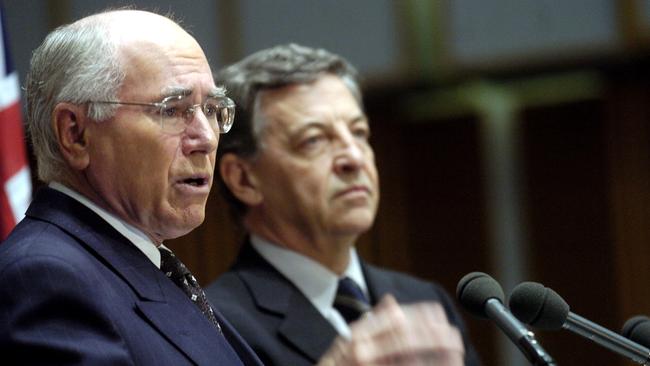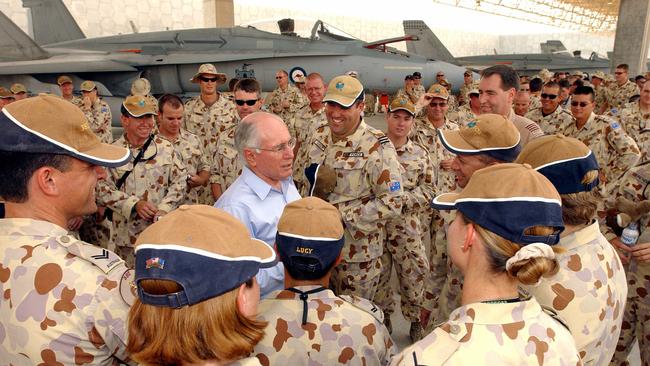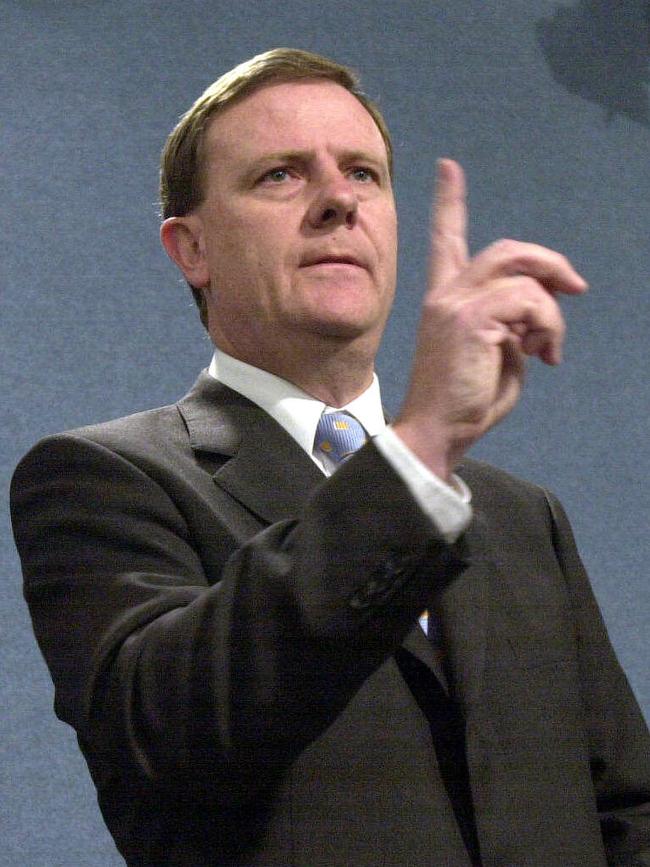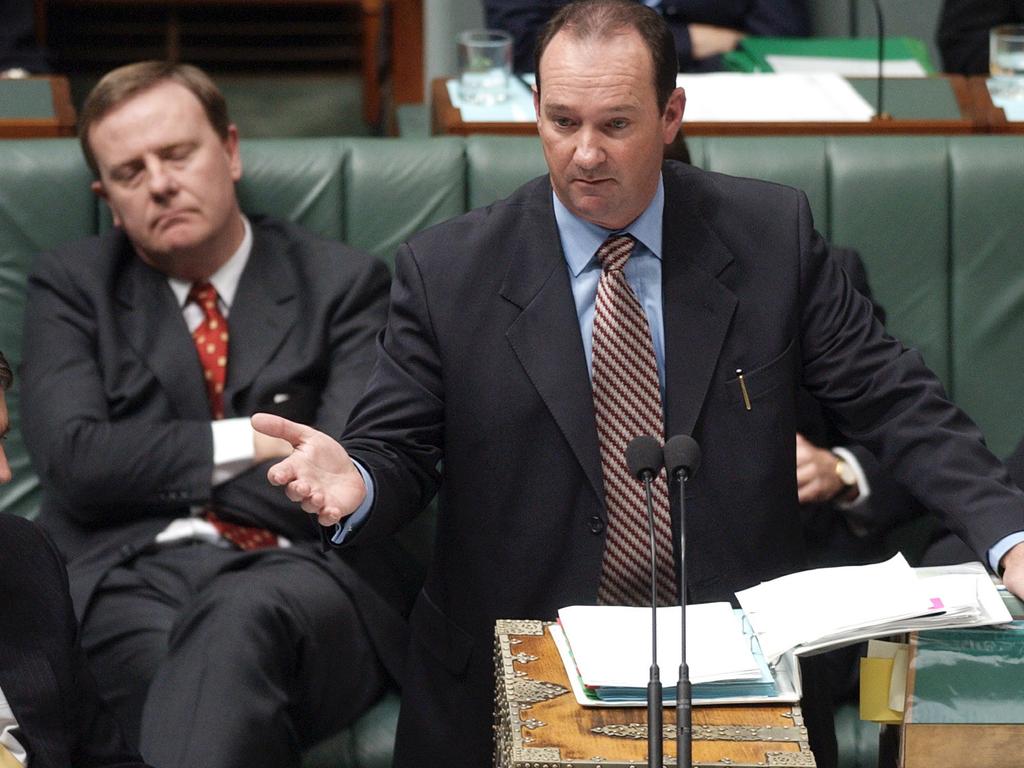
There is no more important decision a government can make than to deploy men and women to war. So the decision by John Howard’s government to join the US-led invasion of Iraq to disarm Saddam Hussein’s regime of weapons of mass destruction in 2003 is of major historical importance.
The war was controversial. It was opposed by Labor, led by Simon Crean. It prompted the largest protest marches since the Vietnam War. So, after two decades, we would finally be allowed to know what ministers knew, and understand the deliberations at the highest level of government.
At the December 5 media briefing about the cabinet records to be released on January 1, it was confirmed there was no written cabinet submission about the benefits, costs and implications of joining the Iraq war. All of the critical briefings and discussions took place in the National Security Committee.
But the Department of the Prime Minister and Cabinet decided not to transfer any of these records to the National Archives of Australia for release on January 1, 2024, as required under the Archives Act 1983. There are only two possible explanations: supreme incompetence by the lead government department or a deliberate cover-up. The records have not gone missing. They have not been misplaced. They have not been forgotten about. Hundreds of cabinet records were made public on Monday.
But it just so happens that records relating to the most important decision taken by cabinet ministers in 2003, deploying forces to Iraq, which were largely NSC records, have not been released at all. How could this be an oversight?
Just one cabinet minute detailing the decision to join the Iraq war has been released but no submissions, no briefings by security or military agencies and no minutes recording discussions have been made public because they are all NSC records.
But guess what? The official historians of the wars in Iraq and Afghanistan have, or will be, given access to NSC records. The National Archives confirmed this. But what about the Australian people? Do they have to wait for official, often censored, histories to gain any insight into these NSC records?
The official cabinet historian, David Lee, was not allowed any access to NSC records. How do we know this? Because I asked him at the media briefing in December. This is utterly absurd. Lee, a highly respected historian, was not given access to records about the most important cabinet matter in 2003.

I subsequently asked Howard, former defence minister Robert Hill and former treasurer Peter Costello – all members of the NSC – if they had any role in the decision to keep records top-secret. They did not. Moreover, they called for them to be released without delay.
These interviews were followed up with a series of questions and phone calls to the department and the National Archives. My questions were as follows:
1. Why have these NSC records not been transferred to the National Archives for public release in accordance with the Archives Act 1983, which stipulates they should be after 15 years in order to be made public after 20 years?
2. Who made this decision and when was it made?
3. Does the government believe the Australian people have a right to know about deliberations undertaken in the NSC to commit forces to war more than 20 years ago?
4. Why has exclusive access to these records been given to the official historians of operations of Iraq and Afghanistan rather than the official cabinet historian and, on January 1, 2024, the Australian people?

5. What consultation was there with former prime minister John Howard and ministers in his government about withholding these records from public release despite being in the open access period on January 1, 2024?
6. When will records from the NSC be made available for public access?
These questions, however, were met with contempt. The department and the National Archives refused to answer them. Instead, they tried to deceive me by insisting many records from the NSC, and others, relating to Iraq were to be released. But, of course, no NSC records relating to Iraq have been released.
In a statement just hours before the cabinet papers were to be made public on January 1 that would make the writers of Yes Minister blush, the department claimed “due to apparent administrative oversights” a “small number” of records were not transferred to the National Archives.
This is high farce. They also blamed – can you believe it? – Covid disruptions in 2020. It is too convenient to blame the Morrison government. Did they not know that every year they release cabinet records from 20 years ago and the most important issue in 2003 was Iraq?
Moreover, following my queries, the records were suddenly “located” and “inspected”, and “transferred” 10 days before January 1. So why haven’t they been released? The announcement, in the New Year’s Eve statement, of an “independent review” by former departmental secretary Dennis Richardson may give us that answer.

Anthony Albanese, who promised to end the culture of secrecy and cover-up, and inaugurate a new era of transparency and accountability in government, needs to take action. It cannot be brushed aside.
The Albanese government is ultimately responsible for this debacle because it had time to address it four weeks ago when it was first raised and release the records, but declined to do so. The Prime Minister needs answers and so do we, the Australian people, who have a right to know.








The annual release of cabinet records after 20 years allows the Australian people to read policy submissions, review the advice provided by departments and examine the deliberations of senior ministers as they made decisions that shape a nation.